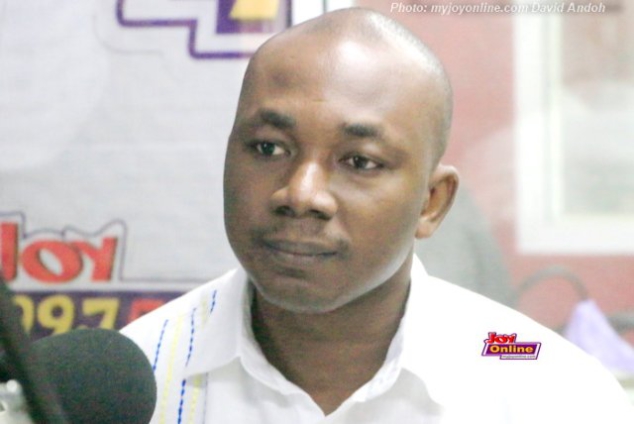Economist, Professor Godfred Bokpin says for the country's economy to grow, businesses should be allowed to thrive regardless of which regime is in power.
He believes businesses and business owners linked to opposition political parties must not be targeted.
His assertion follows comments made by the Minority in Parliament that the government had engaged in the banking sector clean up to collapse banks and microfinance institutions linked to the National Democratic Congress (NDC).
Already, the NDC 2024 Flagbearer, former President John Dramani Mahama has promised that the next National Democratic Congress (NDC) administration will restore the licences of banks whose authorizations were “unjustly” revoked by the central bank.
But speaking on JoyNews' Newsfile on Saturday, Professor Bokpin said the details that came to light after the exercise such as the NDC's affiliation to the alleged targeted and collapsed institutions are worrying.
“I think we should all be bold enough to say we shouldn’t have gone that way; that businesses should be allowed to thrive regardless of which regime is in power. I think that that is very clear,” he said.
The Economist however insists the clean up exercise was necessary.
“I had held the view before, and I still stand by that that the financial sector cleanup was necessary. And I’ve maintained even on this platform before that the vulnerabilities that crystallised towards the end of 2016 running to 2017 which occasioned the financial sector cleanup had started way back towards the end of 2011, the data is clear, non-performing loans and all of that.
“We had maintained that the first asset quality review that was done in 2015, clearly had indicated vulnerabilities in the financial sector. The decisive responsiveness didn’t come the way they should. You can go through the IMF supported programmes, the 16th IMF supported programme from April 3rd, 2015 to April, 2019. That is clear.
“So we were of the view, and I supported the central bank that a certain level of cleanup needed to be done in order to reposition the financial sector to make it a bit more robust to support economic growth,” he explained.
Background
Finance Minister, Ken Ofori-Atta supervised the banking sector clean-up from mid-2017 to January 2020. The clean-up saw a reduction in the number of banks from 34 to 23, whilst 347 microfinance institutions, 15 savings and loans and eight finance houses had their licences revoked.
A number of the institutions that had the licences revoked were found to have varying degrees of corporate governance lapses. The total estimated cost of the state’s fiscal intervention, excluding interest payments, from 2017 to 2019 was pegged at GH¢16.4 billion.
However, the government in 2020 claimed that it spent about GH¢21 billion on the banking clean-up exercise.
Latest Stories
-
Vasseur questions ‘strange momentum’ of Formula One race director change
13 mins -
“I am disappointed in Kojo Manuel” – Merqury Quaye on “no tie” comment
14 mins -
Nana Kwame Bediako; The beacon of unity
16 mins -
Western Region: NDC youth wing embarks on phase 2 of ‘retail campaign’
42 mins -
Action Chapel International holds annual Impact Convention in November
43 mins -
Jana Foundation urges young women to take up leadership roles
47 mins -
All set for Joy FM Prayer Summit for Peace 2024
58 mins -
Managing Prediabetes with the Help of a Dietitian
1 hour -
Joy FM listeners criticise Achiase Commanding Officer’s election comment
2 hours -
Legal Aid Commission employees threaten strike over poor working conditions
2 hours -
Ghana ranked 7th globally as biggest beneficiary of World Bank funding
2 hours -
IMF board to disburse $360m to Ghana in December after third review
2 hours -
Former Bono Regional NPP organiser donates 13 motorbikes to 12 constituencies
2 hours -
Securities industry: Assets under management estimated at GH¢81.7bn in quarter 3, 2024
2 hours -
Gold Fields Ghana Foundation challenges graduates to maximise benefits of community apprenticeship programme
4 hours

